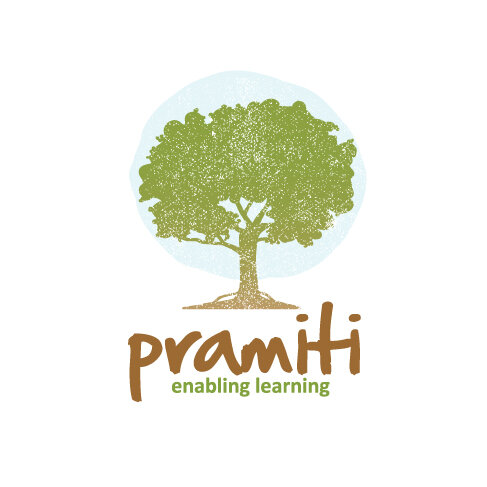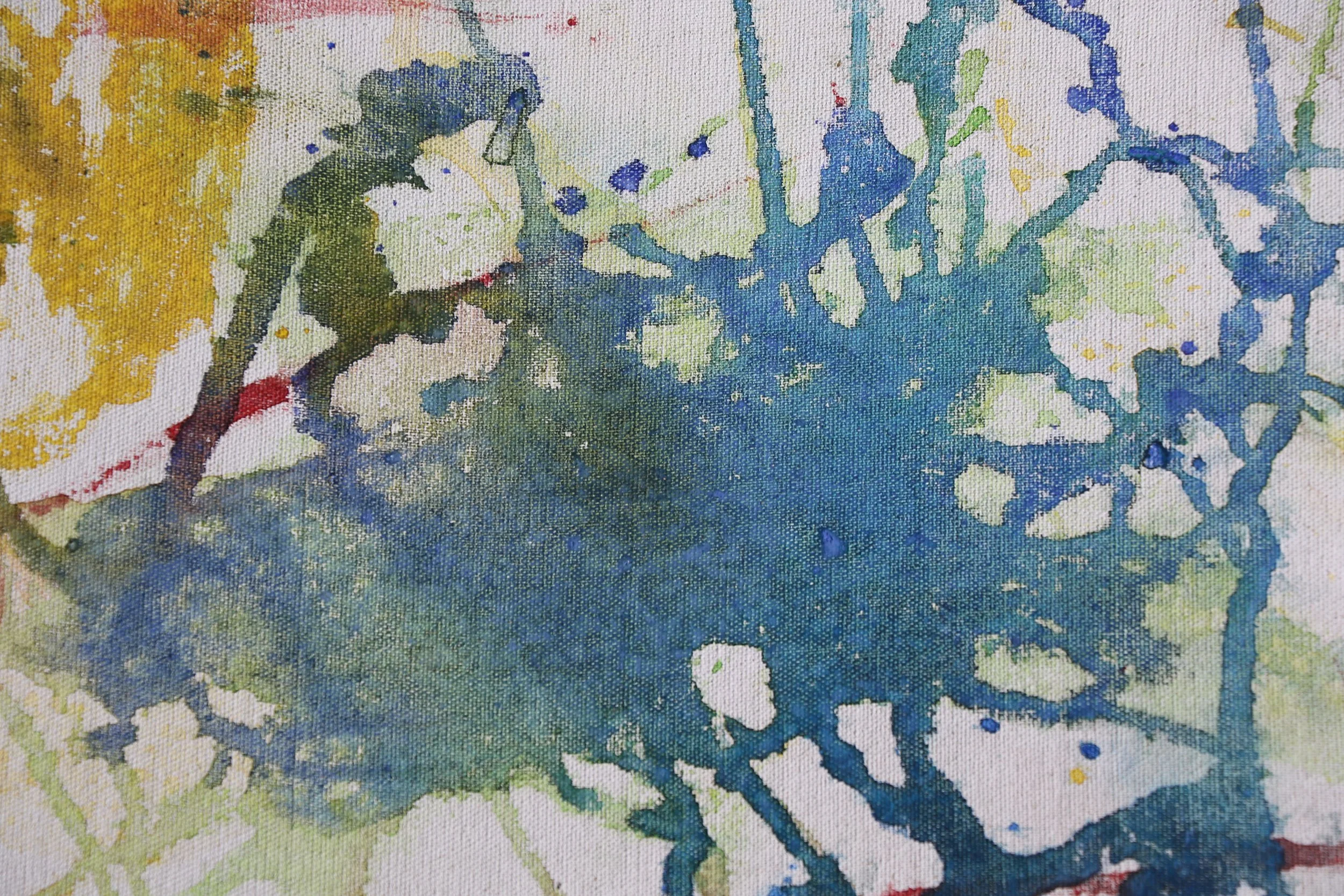
Adolescent Community
Adolescence, an age when everything seems to visibly and invisibly under metamorphosis – body, mind and life in general. Suddenly, the same children are seen as young adults by the world around them and they also like to be treated as adults in many occasions. We recognise this tendency and our most important goal during these years is to help the children groom themselves up to be mature, responsible, self motivated and perseverant. All the skills that were getting developed now also start seeing application and refinement. Our curriculum focuses on transitioning children to a lot more of application and generalisation of concepts, starting to work on areas of specialisation and start recognising their interests. They start carving out their path for future studies while we help them become aware of themselves and the world around them. Team work takes centre stage and being proactive and focused becomes of utmost importance.
We offer an array of subjects for this age group and the choice is driven by combinations required for chosen career paths and what is required generally in today’s changing times.
Grade 9 and 10 (IGCSE)
Children write their board examination in the IGCSE format and the subjects Pramiti offers are English Language, Mathematics, Physics, Chemistry, Biology, Computer Science, History, Geography, Global Perspectives and English Literature.
While English Language is compulsory for all, children can choose any other subjects in any combination – five being the absolute minimum and seven being the recommended maximum. Apart from the above, we also add few more areas of learning to help provide a more rounded and complete approach to learning and development.
English Language
The focus in these years is to apply all the skills that were developed right from the Early Years. The usage of language and understanding why we use it that way becomes the predominant factor. Children use their knowledge in expressing what they feel, think and opine. Using language for purpose and particular audience is a skill that is further developed, refined and assessed.
Computational Sciences
The subjects offered under this category are Mathematics and Computer Sciences. The focus is again on application of concepts and using skills to understand and come up with viable ways to solve problems. Where do we interact with these concepts in our daily lives and where do we use them are questions that encompass children’s minds. The Curriculum attempts at helping them make sense of what they learn in classrooms in the outside world and with what they interact with every day.
Natural Sciences
From wondering about things that happen around us to understanding why they happen and also developing Science process skills like observation, prediction and the like, children experience Science in various forms. They now start focusing on learning concepts with an objective of deeper understanding of the subject and the concepts presented therein. They also realise how different branches of Science in relation to each other.
History
The study of the past and how that also ties to our present and future and our interactions with each other form the base of this study. Children explore different periods and movements and also do in depth study on topics of their choice. How was life before and how were we as people? How did our lives get influenced by the times we live in, the experiences we go through and the incidents that occur?
Geography
The study of the earth, the universe, the environment and the various features of the physical space we live in, is part of this area of learning. How do we interact with resources, what are the sources of these resources and how we have utilised them and should conserve them for our suture becomes essential concepts of studies in this subject. Along with this there are several geographical skills that are developed and can be used in our daily lives.
English Literature
From conceiving literature as an expression of humanity in the written word the learners are now ready to dissect exemplary works and understand them from a personal perspective. The focus here is to realise the elasticity and expressive extents of the English language and also discover its rules and limitations on human communication.
Global Perspectives
As our children start looking at the world not just as their immediate locality or even state or country, they start to realise that there are several perspectives that one will look at a particular idea or issue with. To be able to understand these varied perspectives and also use this understanding to in turn understand the issues or ides is what Global Perspectives helps with. Children engage in research, analysis, synthesis and communicating different perspectives by engaging in individual and group projects. Children get an insight into working as a group to meet common goals and how they can do this effectively in an organised and well-planned way. They also develop skills of doing research, documenting, inferring and of course draw perspectives from their analysis.
Art Immersion
At Pramiti, Arts and Culture are integrated into the main curriculum. The offerings in this area will span across Music, Dance, Theatre, Art and Craft. The objective of the curriculum is to provide exposure to all areas to kindle interest and appreciation for the various forms in this age group.
Art is treated as a form of expression led by observation and criticality. True expression happens when an individual has the freedom to see, explore, think and translate one’s imagination towards an act of creation. The process of exploration is the learning experience. The child also develops an eye for detail and observation to critically appreciate one’s own work and thus sculpt it to his satisfaction.
Music is the essence of life and we absorb it sub-consciously from nature as well. The exposure to various forms of music is a way to unleash the unconscious absorption that happens with all of us.
Drama and dance make way for a whole new level of creative expression where the child gets to experiment and express a wide range of emotions, feelings, ideas and body movements.
Besides, Art transcends boundaries and allow the child to appreciate different cultures and traditions. Skill development and performance is a part of the process of learning and not the ultimate goal.
Life Sciences
This area encompasses Sports, Physical fitness and regime, Health and Nutrition. Being fit is an attitude in many ways and this can be developed if we start early very naturally. In the Intermediary Years, children are developing skills of playing specific areas of Sports as per their choice and what the school offers. The curriculum emphasises in not only developing skills and expertise but also developing the right attitude, team spirit, compassion, perseverance and higher thresholds. Healthy eating habits are promoted not just through preaching but also embodying a healthy menu in our kitchen and promoting eating native and seasonal.
Culture
This stage of children’s lives is very crucial as this is the time when children start developing images of self, people around them and the world at large. They start seeking an identity for themselves and in the medley of finding oneself, they have a lot of confusion, indulge in various discussions, thoughts and acts out of curiosity. They want to know and talk about everything that is “adult” and perhaps presented by adults as taboo for them. The role of the Culture Periods is to open room for dialogues, introspection, discussion, interactions and questioning. We believe that there is no better tool than open communication to help children deal with inner conflicts and fears. While there perhaps can never be answers to all questions or a single road leading to solutions to problems, there is definitely the opportunity to explore consciously with support and hand holding. These sessions greatly promote that.
Self and Community
Co-existence and collaboration is one the bedrocks of our program. The child learns to work independently and in a group, understand relationships and appreciate the togetherness and dynamics in a community. In the process, the child understands various aspects of communication, presentation and positive interaction.
The child gets exposure in the form of projects, field trips and work experience trips. Children work with people from various strata of society and understand the dynamics of communal living and also experience dignity of labour.
Grades 11 and 12 (A and AS level)
These two years are crucial as they will help children not just as a foundation to start their career path in an informed and well analysed manner but also help them explore new areas of learning that they probably have heard of but not studied. Children are now young adults who start exploring how they can shape their future, what do they need to do, how can they seek help and support and also make the best of opportunities existing and created.
The streams offered are the Sciences and Humanities where there is a wide array of subjects offered under both categories and children can mix and match as per their preferences which is driven by what career paths they would most likely choose. English Language is compulsory and the students can choose a minimum of 4 more subjects and a maximum of 6 is recommended keeping in mind the fact that the curriculum is in depth and demanding. This is also a time when they start realising that while they might be interested in something and skilled at something else, they need to develop the maturity to understand that at times we must be able to marry what we are capable of and what we are interested in doing and thus find the right balance.
In addition, students are provided support in terms of making decisions regarding career paths and are counselled
The treatment of all subjects remains philosophically consistent with the programs for Grades 9 and 10 but progress towards a logical sophistication in keeping with the maturity of the learners at the Grades 11 and 12 level. An exception will be encountered in the Humanities stream where we see the introduction of four new subjects. This stream is discussed in the following section.
Humanities
The primary theoretical disciplines explored are Psychology, Economics and Sociology. These are three branches of studies that students might have come in touch with indirectly but this is the time when they will truly come face to face with the details and also more importantly their application. In their encounters they will discover the direct or indirect bearing these subjects might have in various fields of work. The interrelation between these subjects and others in Sciences and Languages will also be examined.
Art & Design is the fourth subject under the humanities umbrella. Art serves as an expressive tool for the critique of society while design serves as a commercial tool for the service of society. Both are indelibly anchored in the three theoretical disciplines and serves as a realisation of these disciplines in the practical instances of everyday life.
“Don't laugh at a youth for his affectations; he is only trying on one face after another to find a face of his own.”
- Logan Pearsall Smith, "Age and Death, Afterthoughts”, 1931

